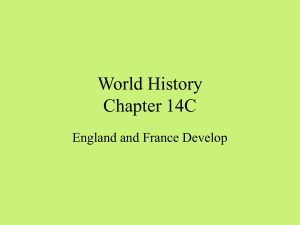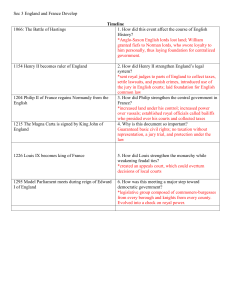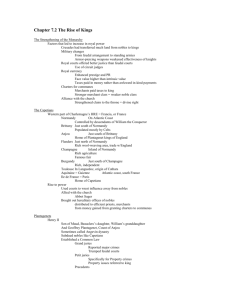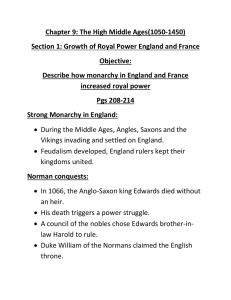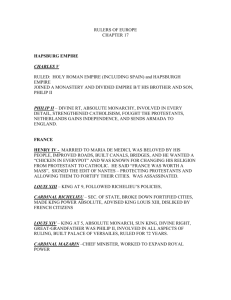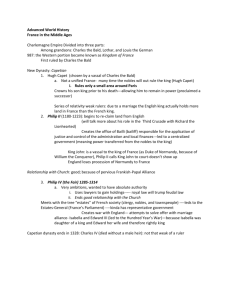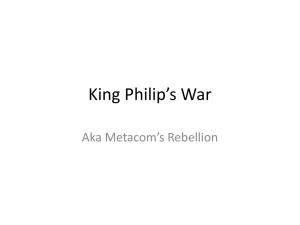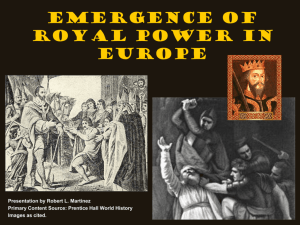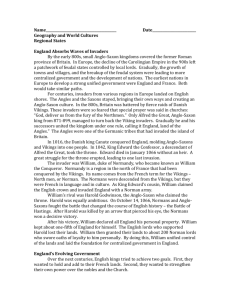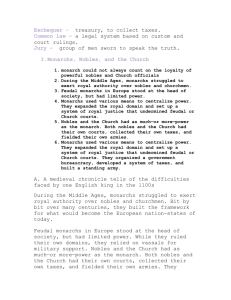Successful Monarchs in France
advertisement
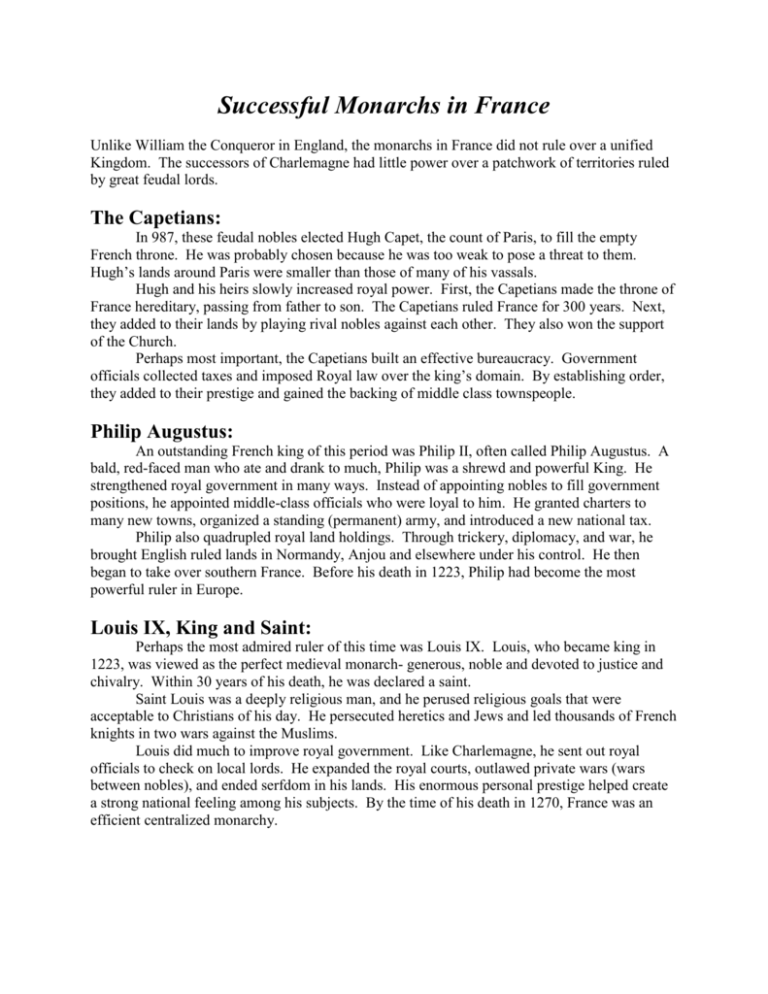
Successful Monarchs in France Unlike William the Conqueror in England, the monarchs in France did not rule over a unified Kingdom. The successors of Charlemagne had little power over a patchwork of territories ruled by great feudal lords. The Capetians: In 987, these feudal nobles elected Hugh Capet, the count of Paris, to fill the empty French throne. He was probably chosen because he was too weak to pose a threat to them. Hugh’s lands around Paris were smaller than those of many of his vassals. Hugh and his heirs slowly increased royal power. First, the Capetians made the throne of France hereditary, passing from father to son. The Capetians ruled France for 300 years. Next, they added to their lands by playing rival nobles against each other. They also won the support of the Church. Perhaps most important, the Capetians built an effective bureaucracy. Government officials collected taxes and imposed Royal law over the king’s domain. By establishing order, they added to their prestige and gained the backing of middle class townspeople. Philip Augustus: An outstanding French king of this period was Philip II, often called Philip Augustus. A bald, red-faced man who ate and drank to much, Philip was a shrewd and powerful King. He strengthened royal government in many ways. Instead of appointing nobles to fill government positions, he appointed middle-class officials who were loyal to him. He granted charters to many new towns, organized a standing (permanent) army, and introduced a new national tax. Philip also quadrupled royal land holdings. Through trickery, diplomacy, and war, he brought English ruled lands in Normandy, Anjou and elsewhere under his control. He then began to take over southern France. Before his death in 1223, Philip had become the most powerful ruler in Europe. Louis IX, King and Saint: Perhaps the most admired ruler of this time was Louis IX. Louis, who became king in 1223, was viewed as the perfect medieval monarch- generous, noble and devoted to justice and chivalry. Within 30 years of his death, he was declared a saint. Saint Louis was a deeply religious man, and he perused religious goals that were acceptable to Christians of his day. He persecuted heretics and Jews and led thousands of French knights in two wars against the Muslims. Louis did much to improve royal government. Like Charlemagne, he sent out royal officials to check on local lords. He expanded the royal courts, outlawed private wars (wars between nobles), and ended serfdom in his lands. His enormous personal prestige helped create a strong national feeling among his subjects. By the time of his death in 1270, France was an efficient centralized monarchy. Philip IV Clashes With the Pope: Louis’s grandson, Philip IV, ruthlessly extended royal power. To raise funds, he began to collect new taxes from the clergy. This angered Pope Boniface VIII. Declaring that “God has set popes over kings and kingdoms” Pope Boniface VIII prohibited Philp from taxing the church without papal consent. Philip countered by threatening to arrest any clergy who did not pay the tax. Philip sent troops to seize Boniface. The Pope escaped, but he was badly beaten and died soon afterwards. Shortly afterward, a Frenchman was elected pope. He moved the papal court from Rome to Avignon, in southern France, ensuring that future French rulers would control religion within their own kingdoms. The Estates General: During this struggle with the pope, Philip rallied French support by setting up the Estates General in 1302. This body had representatives from all three estates, or classes: clergy, nobles, and townspeople. Although later French kings consulted the Estates General, it did not develop the same role that English Parliament did. It never gained the power of the purse or otherwise served as a balance to royal power. Directions: Answer the following questions on a separate sheet of paper. 1. How did the Capetians increase their power? 2. Who supported to Capetian kings in France? 3. How did Philip II increase the strength of the royal government? 4. What religious goals did Louis IX pursue? 5. What was Philip IV’s conflict with the church,? What was the result of that conflict? 6. Who was represented in the Estates General? 7. Compare the growth of royal power in England and France, what methods did monarchs in both kingdoms use to increase royal power?
